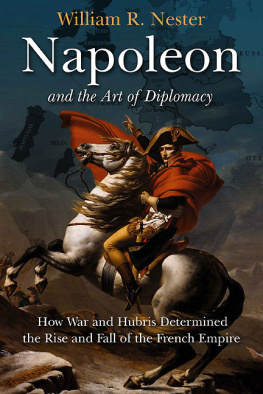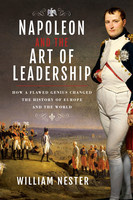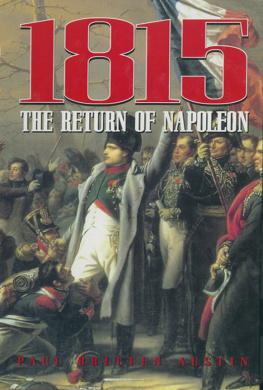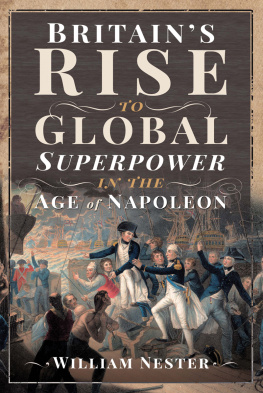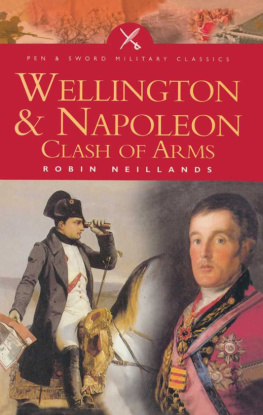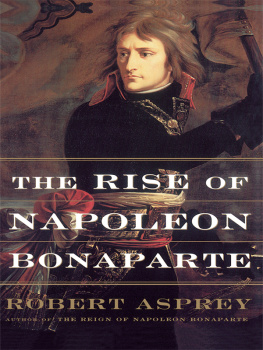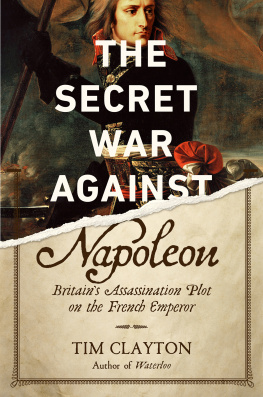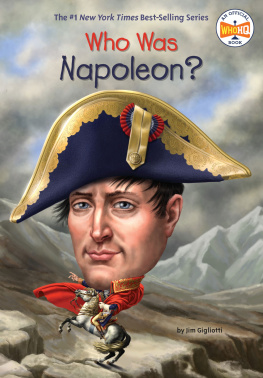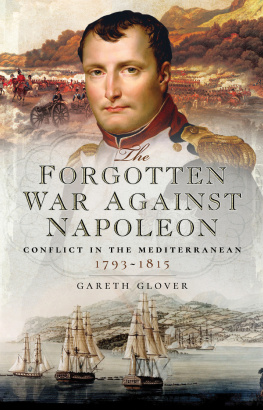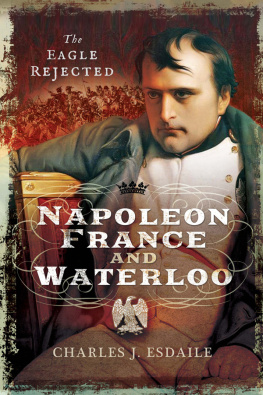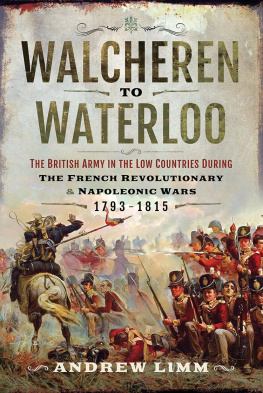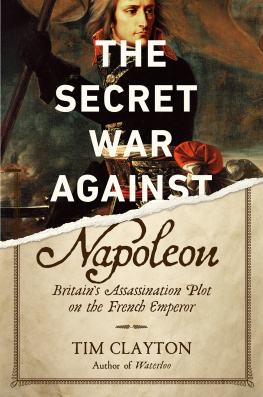Britains Rise to Global Superpower in the Age of Napoleon
Britains Rise to Global Superpower in the Age of Napoleon
William R. Nester
First published in Great Britain in 2020 by
Frontline Books
An imprint of
Pen & Sword Books Ltd
Yorkshire Philadelphia
Copyright William R. Nester 2020
ISBN 978 1 52677 543 6
eISBN 978 1 52677 544 3
Mobi ISBN 978 1 52677 545 0
The right of William R. Nester to be identified as Author of this work has been asserted by him in accordance with the Copyright, Designs and Patents Act 1988.
A CIP catalogue record for this book is available from the British Library.
All rights reserved. No part of this book may be reproduced or transmitted in any form or by any means, electronic or mechanical including photocopying, recording or by any information storage and retrieval system, without permission from the Publisher in writing.
Pen & Sword Books Limited incorporates the imprints of Atlas, Archaeology, Aviation, Discovery, Family History, Fiction, History, Maritime, Military, Military Classics, Politics, Select, Transport, True Crime, Air World, Frontline Publishing, Leo Cooper, Remember When, Seaforth Publishing, The Praetorian Press, Wharncliffe Local History, Wharncliffe Transport, Wharncliffe True Crime and White Owl.
For a complete list of Pen & Sword titles please contact
PEN & SWORD BOOKS LIMITED
47 Church Street, Barnsley, South Yorkshire, S70 2AS, England
E-mail:
Website: www.pen-and-sword.co.uk
Or
PEN AND SWORD BOOKS
1950 Lawrence Rd, Havertown, PA 19083, USA
E-mail:
Website: www.penandswordbooks.com
List of Tables
1.1British Army Numbers
1.2British and French Naval Power
Maps

The Mediterranean Campaign, 1798.

The Trafalgar Campaign, 1805.

The Peninsula Campaigns, 180713.

The Great LakesSaint Lawrence Campaigns, 181214.

The Gulf Campaigns, 181415.

The Waterloo Campaign, 1815.

The Battle of Waterloo, June 18, 1815.
Acknowledgements
I want to express my deep gratitude and pleasure at having had the opportunity to work with the outstanding Pen & Sword editorial team of Lisa Hoosan, Alison Flowers, John Grehan, and Martin Mace, who were always as kind as they were professional.
Introduction
T he art of power consists of getting what one wants. That is never more challenging than when a nation is at war. Britain fought a nearly non-stop war against first revolutionary then Napoleonic France from 1793 to 1815. During those twenty-two years, the British government formed, financed, and led seven coalitions against France. The French inflicted humiliating defeats on the first five coalitions. Eventually Britain and its allies prevailed, not once but twice by vanquishing Napoleon temporarily in 1814 and definitively in 1815.
Of the many reasons why Britain and its allies suffered defeats during the wars initial two decades, one is crucial. Although war is as old as humanity, the art of war changes with time. Innovations in technology combined with brilliant leadership revolutionize strategy and tactics. French revolutionaries created and Napoleon perfected a new form of warfare. Never before had a government mobilized so much of a realms manpower, industry, finance, and patriotism, nor, under Napoleon wielded it more effectively and ruthlessly to pulverize and conquer ones enemies.
Britain struggled up a blood-soaked learning curve to master this new form of warfare. With time the British made the most of their natural strategic and economic advantages. Britons were relatively secure and prosperous in their island realm. British merchants, manufacturers, and financiers dominated global markets and exclusive access to an expanding empire.
Yet even with those assets victory was not inevitable. Two brilliant military leaders are the most vital reasons why Britain and its allies vanquished France when and how they did. General Arthur Wellesley, Duke of Wellington and Admiral Horatio Nelson respectively mastered warfare on land and at sea. Britains Rise to Global Superpower during the Age of Napoleon reveals how decisively or disastrously Britains army and navy wielded the art of military power during the Age of Revolution and Napoleon.
Chapter 1
The Art of British Military Power, 17931815
A private of one of our infantry regiments enter[ed] the park, gaping about at the statures and images There, he said pointing to the soldier, it all depends upon that article whether we do the business or not. Give me enough of it, and I am sure.
Wellington, when asked how he would beat Napoleon
Some indeed exclaimed that their sufferings were the more aggravated as being inflicted contrary to the laws of all civilized nations. The unfortunate sufferers seemed not to reflect that war was will, not law.
Ensign Robert Blakeney of the 28th, reflecting on the British bombardment of Copenhagen
T he art of power, or ability to get what one wants, is inseparable from politics or conflicts between two or more individuals or groups. Power has hard physical and soft psychological dimensions. The art of power, or smart power, is the judicious choice and assertion of appropriate hard and soft resources to prevail in a conflict. The art of power varies sharply between peaceful and violent struggles. In war, a state or group musters hard power resources like people, money, weapons, provisions, and other essentials into military forces. Soft power determines how one organizes, supplies, and transports those resources, motivates the military personnel, gets critical information about the enemys forces and plans, and implements the strategies and tactics that destroy the enemys physical and, most importantly, psychological ability to keep fighting. Strategy, tactics, and technologies are tightly bound. Occasionally new technologies, techniques, or outlooks will transform a prevailing art of military power into something distinctly different. Such inventions as the spear, stirrup, gunpowder, barbed wire, machine gun, airplane, tank, and computer, to name a few, revolutionized military power. Obviously the state or group that first masters the new art will likely triumph over those that persist with the obsolete version.


